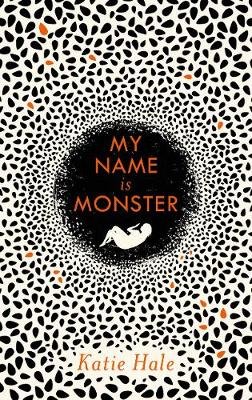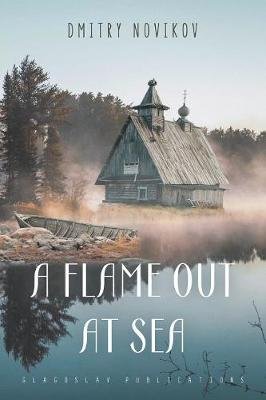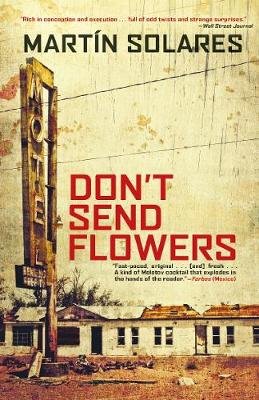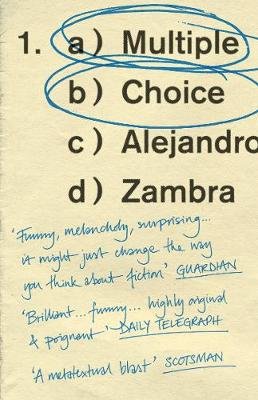 If I were to rank the books I’ve read during the lifetime of this blog (and there are over 500 of them) in order of enjoyment, Eleanor Catton’s The Rehearsal (2008) would be right at the top of the list. I bought it on a whim, knowing nothing about it; I was nearly put off by its mannered style; but then everything clicked into place, and I ended up with one of the greatest reading experiences of my life. Naturally, then, I’ve been eager ever since to read a second novel by Catton.
If I were to rank the books I’ve read during the lifetime of this blog (and there are over 500 of them) in order of enjoyment, Eleanor Catton’s The Rehearsal (2008) would be right at the top of the list. I bought it on a whim, knowing nothing about it; I was nearly put off by its mannered style; but then everything clicked into place, and I ended up with one of the greatest reading experiences of my life. Naturally, then, I’ve been eager ever since to read a second novel by Catton.
Four years after reading The Rehearsal, I have now had that opportunity. At first sight, The Luminaries appears a very different proposition from Catton’s debut: at 830 pages in hardback, it is more than twice the length of The Rehearsal. Where the first novel was set in a deliberately non-specific contemporary Western milieu, the new book is tied firmly to a time and place: the New Zealand gold rush town of Hokitika in 1865-6. Where The Rehearsal was fractured and stylised, The Luminaries has the appearance of being more conventional: the chronology leaps back at one point, and the novel’s twelve parts grow progressively shorter, but there’s nothing as obvious as The Rehearsal’s non-linear blurring of realities; and Catton’s prose remains within a largely convincing 19th-century idiom.
Things are not as simple as they seem. What made The Rehearsal stand out so much for me was how its unconventional form and style so completely embodied its central concern of performance, and reflected that back in myriad ways throughout the book. Catton does the same thing in The Luminaries, with a different set of concerns – but the extent of it only become apparent once you’ve finished.
Before I get further into that, some plot: we begin on 27 January 1866, when Walter Moody, a Scottish lawyer, walks into the smoking room of Hokitika’s Crown Hotel, disturbing twelve men in conference. Gradually gaining their trust, Moody hears their story: a couple of weeks earlier, a hermit named Crosbie Wells was found dead in his cottage, and a not inconsiderable fortune soon after. Around the same time, a young woman was found unconscious from opium in the road, apparently having tried to commit suicide. Through acquaintance with each other, each of the twelve men discovered that he was somehow connected to these events; so they decided to gather together in this room to discuss what may have happened, and what could be done.
As the novel progresses, more and more connections between the characters become apparent, revealing a complex and dastardly plot. It’s not for me to say much more about the twists and turns; but I will say that, if you want a page-turning murder mystery, you will find one in The Luminaries. This book is as tense and exciting a read as I have come across in a long time. But Catton does not stop there.
If you read any articles about The Luminaries, you’ll soon hear about its elaborate astrological underpinning. Twelve of Catton’s characters (the twelve men interrupted by Walter Moody) represent the signs of the zodiac; another seven represent planetary bodies (Moody is Mercury, for instance). Catton calculated the horoscope for Hokitika during the calendar year in which The Luminaries is set, and transposed the changing positions of each body into the relationships between her characters. Now, for many readers (including myself), I suspect this would not be a satisfactory end in itself: if you don’t know much about astrology, you won’t spot the connections; if you don’t believe in it, then you probably won’t care anyway. But what this astrological foundation does, to my mind, is set up some of the novel’s main subtexts.
One of these, as I’ve hinted above, is the idea of connection and relation. This is perhaps most obvious in the mystery itself: ‘there is no truth except truth in relation’ (p. 364), as Catton’s omniscient narrator puts it; and, indeed, no single character knows the full truth of Crosbie Wells’s death, or the plot going on around it. But we also see this theme manifest in the way that so many of the characters are trying to forge their own paths in life, to act on or against the world (gold prospectors in search of a life-transforming nugget, of course, but others as well), yet are scuppered by the actions of others. Catton’s characters are enmeshed in a web of interdependence that they can only begin to comprehend.
But the zodiac is not only a structure for connecting relationships in this novel; it’s also an artificial pattern imposed by humans on the night sky – and most of the characters have no truck with it. There are several ways in which Catton examines how we try to impose order on reality, and the implications and limitations of doing so. A murder mystery, for example, traditionally relies on a pattern being imposed upon seemingly unconnected facts. There are two major scenes in The Luminaries where this happens: when Moody sums up the accounts of the men in the Crown Hotel, and a later courtroom scene. Both of these sequences end with someone rushing in to announce an unexpected development. It’s a rather melodramatic device, but I see it as a literal interruption of disorder: the facts have been arranged to the characters’ satisfaction; everything seems to make sense – then in comes someone to reveal that it doesn’t. A classic fictional edifice is undermined with one of its own tools.
More pointedly than murder mysteries, there’s another example of a pattern placed over reality in the form of the gold mines themselves. These affect the world physically, silting up the Hokitika River; and Catton never allows us to forget that this is land which once belonged to the Maori. ‘You with your greenstone, us with our gold. It might just as well be the other way about,’ says one character to the Maori Te Rau Tauwhare. ‘No,’ replies Tauwhare, ‘it is not the same’ (p. 814) – but that is as much as we hear. These issues may not be explored in detail in The Luminaries, but Tauwhare’s voice still speaks eloquently, for all that it does not say.
I said earlier that each of the novel’s twelve parts is shorter than the last; more precisely, each part is half the length of the previous one (so Part I is nearly half the book, part XII just a few dozen words). This gives The Luminaries the shape of a golden spiral. It also acts like a spiral – or, to keep up the celestial theme, a black hole, stripping out information as it goes. Though the novel begins with the immersive detail of a mystery, when the focus moves back to 1865 to tell the events leading up to Crosbie Wells’s murders, the chapters then get shorter and shorter – the narrative breaks apart.
Here, the novel begins to embody the tension between the open future and rueful hindsight, the sense of predestination and the sense of free will. The summaries heading each chapter (all beginning: “In which…” take on more of the detail. Without these, each chapter would be a floating fragment of time with no context; the only reason we can place them is that we know what has come afterwards. So the novel spirals down to a singularity, a moment poised between the infinite possibility ahead for those experiencing it, and the inevitable tragedy that we know will unfold. What may seem foreordained after the event is, we see, nothing of the sort in the present moment.
I finished The Luminaries grinning from ear to ear at the experience of having read a novel so completely and idiosyncratically realised. Moments like that are one reason I read books in the first place; and they’re why, for me, Eleanor Catton belongs in the first rank of authors writing today.
Like this:
Like Loading...




 If I were to rank the books I’ve read during the lifetime of this blog (and there are over 500 of them) in order of enjoyment, Eleanor Catton’s The Rehearsal (2008) would be right at the top of the list. I bought it on a whim, knowing nothing about it; I was nearly put off by its mannered style; but then everything clicked into place, and I ended up with
If I were to rank the books I’ve read during the lifetime of this blog (and there are over 500 of them) in order of enjoyment, Eleanor Catton’s The Rehearsal (2008) would be right at the top of the list. I bought it on a whim, knowing nothing about it; I was nearly put off by its mannered style; but then everything clicked into place, and I ended up with
Recent Comments